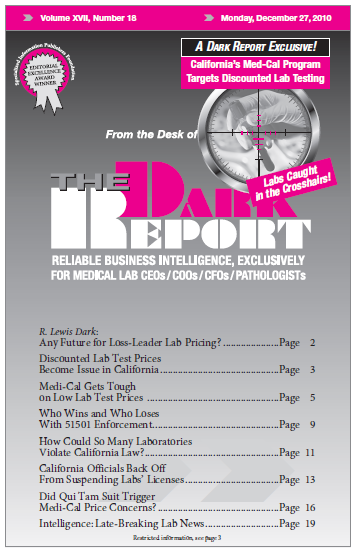CEO SUMMARY: It is easy to track backwards to understand why the California Department of Healthcare Services (DHCS) began aggressive enforcement of its interpretation of statute 51501(a) against a number of labs this summer. DHCS officials were given a full education and a roadmap for action when, in April, 2009, the whistleblower lawsuit that accused …
Did Qui Tam Suit Trigger Medi-Cal Price Concerns? Read More »
To access this post, you must purchase The Dark Report.


